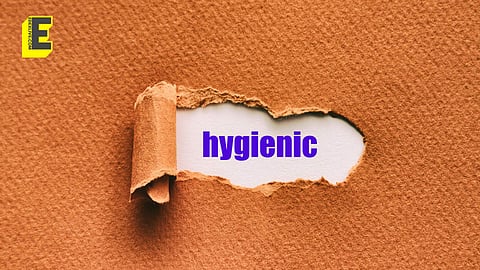

A joint advisory was issued by the Centre asking states and union territories (UTs) to train school teachers to impart hygiene education to students. This joint advisory was issued by the ministries of Education, Jal Shakti, Rural Development and Panchayati Raj and the NITI Aayog.
"The rejuvenation of basic infrastructure including improved sanitation facilities and provision of safe drinking water and maintaining the overall cleanliness in the government schools has long been a priority," the advisory read. Giving details about programmes, the advisory said that some of the programmes are being implemented in a mission mode such as the Swachh Bharat Mission-Grameen and the Jal Jeevan Mission and are going a long way in improving the living standards of people, as stated in a report by PTI.
Sharing details about objectives, the advisory said, "Under Phase -ll of the Swachh Bharat Mission (Grameen), the focus is on open defecation free (ODF) sustainability and solid and liquid waste management. Following the saturation approach, the objective, is to ensure that no one is left behind from access to improved including schools."
Giving more details, it said, "Under ODF Plus, it is also to be ensured that all schools in villages have arrangements for management of bio-degradable waste and grey water. It is important to ensure that all toilets in schools are in proper functioning condition. However, some of them may require retrofitting from single pit to twin pits. This may be done as part of the on-going campaign of retrofitting from single pit to twin pits," it added.
Moreover, the Unified District Information System for Education (UDISE) Report 2021-22 pointed out a few gaps in toilets and hand-washing facilities. Based on this, the Centre asked the states to fill them. "Hand washing facilities with the provision of soap may be created in all schools. It is also essential that hygiene education is imparted to the children on all aspects of hygiene," it said.
For following this, the Centre said at least one teacher in each school must be taught about hygiene education who, in turn, will teach the children through interesting activities and community projects that emphasise hygiene behaviour, the advisory said. Further, it informed that a chapter on Swachhta has been included in supplementary material at the primary level developed by the NCERT to inculcate good hygiene practices in schools.
Under the Jal Jeevan Mission, making a provision for safe tap water supply in schools, anganwadi centres and ashramshalas is the top priority for the government to ensure the good health and well-being of children, it highlighted. "Flexibility has been given to the states and union territories to provide stand-alone piped water supply solutions instead of waiting for the completion of the village water supply infrastructure for schools and simple sustainable solar solutions may also be provided," the advisory said.
As per the UDISE+ 2021-22 data, out of around 10.22 lakh government schools, functional drinking water facility has been provided in 9.83 lakh schools.
It said that any requirement of funds for repair or construction of toilets, hand washing facilities or drinking water can be met from funds being released "under the 15th Finance Commission, state finance commission, MGNREGS, district mineral funds and any other sources, following the extant guidelines of these schemes and sources", it said.
